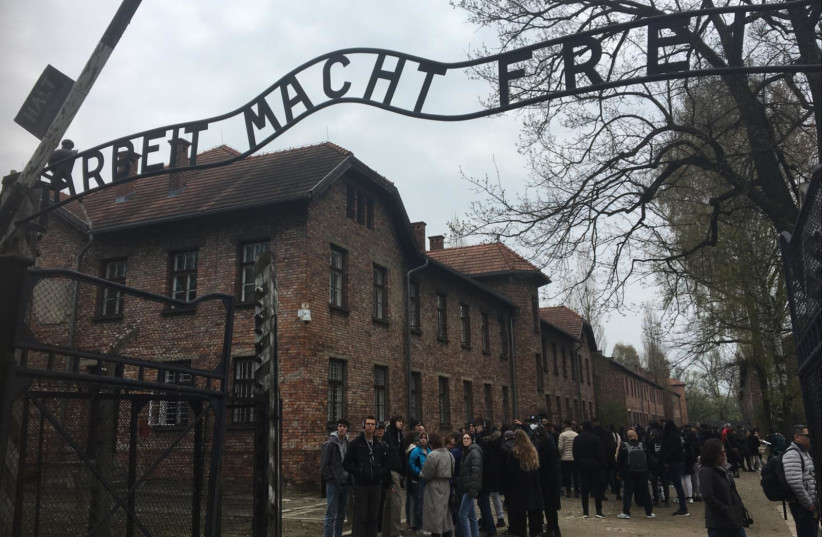A Canadian cardinal with Jewish ancestry honored a philosopher-nun murdered by the Nazis because of her own Jewish parentage.
Cardinal Michael Czerny, 76, gave a homily Tuesday and led a mass in Oswiecim, the Polish name for the town of Auschwitz, where Sister Teresa Benedict was sent to the gas chambers by the Nazis on Aug. 9, 1942.
Born Edith Stein in Breslau, Germany (now Wrocław, Poland) to an Orthodox Jewish family, Stein converted to Catholicism in her 30s. She joined the Carmelite Order — a monastic community founded on Mount Carmel in what is now Israel during the Crusades.
In 1998, Stein was canonized by Pope John Paul II as Saint Teresa Benedetta della Croce in a move that was met by opposition from the Jewish community because she had been persecuted for being born a Jew, not because she was Catholic.
In his speech marking the 80th anniversary of Stein’s murder, Czerny, whose mother’s family were Jewish converts to Catholicism, spoke about his family’s fate under the Nazi regime, and noted the parallels to Stein’s story.

Born in Brno, Czechoslovakia, Czerny emigrated with his parents to Canada as a young child. Despite their conversion to Catholicism, his maternal grandparents and two uncles “shared the Jewish origins that the enemy abhorred,” Czerny said. “My maternal grandmother Anna, my grandfather Hans and my uncles Georg and Carl Robert, were all interned in Terezín, where Hans died.”
Terezín, or Theresienstadt in German, was a Nazi-run concentration camp in what was then Czechoslovakia.
“My grandmother and uncles were transported to Auschwitz,” he added. “From here my uncles were sent to labor camps and eventually murdered there.”
“Remembering both Edith and Anna with the 6 million others,” Czerny said, “we mourn and repent, ‘Lest we forget.’”
Edith's capture
Stein was teaching at a Catholic school in Speyer, Germany, when the Nazis rose to power. She and her older sister Rosa, who had also converted to Catholicism, were transferred to the Netherlands for their own safety, but were arrested by the Nazis on Aug. 2, 1942. The two sisters were murdered in the gas chambers at Auschwitz seven days later.
In her 1938 autobiography, Edith Stein revealed that she had written a letter to Pope Pius XI five years earlier, pleading with him to organize the Catholic Church against the Nazi persecution of the Jews.
Debate over the role of the Church during the war has only intensified since the release of the Vatican’s wartime archives in 2020, with many Jewish leaders and historians of the era objecting to the ongoing beatification of Pius XII, Pius XI’s successor, and urging the Church to provide more details about the Vatican’s actions during the Holocaust.
